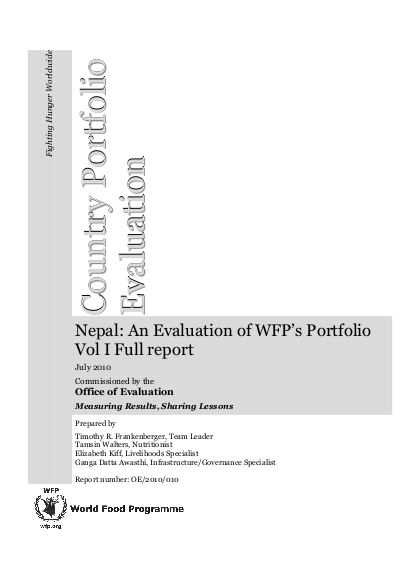Volume I

Objectives: From 2002 to 2009, WFP has assisted Nepal with a portfolio comprising 15 operations worth US$282 million with the aims to save lives, invest in disaster preparedness, protect and rebuild livelihoods, reduce malnutrition, improve educational outcomes and develop government capacities.
This report evaluates the portfolio against three questions: i) How well did WFP position itself strategically and align with government and partner strategies? ii) How did WFP make choices and how strategic were these? and, iii) How did the portfolio perform, and what were its results? The evaluation found that WFP’s portfolio was closely aligned with the Government of Nepal’s and people’s needs and that WFP made good strategic choices. Food assistance was efficiently and effectively delivered resulting in positive outcomes for food for work/assets/training, nutrition and education interventions and general food distributions. Engaging in longer-term productive safety nets, developing an integrated lifecycle approach to nutrition, maintaining emergency response capacity, enhancing WFP’s role in policy dialogue and refining ongoing operations are recommended for the future.